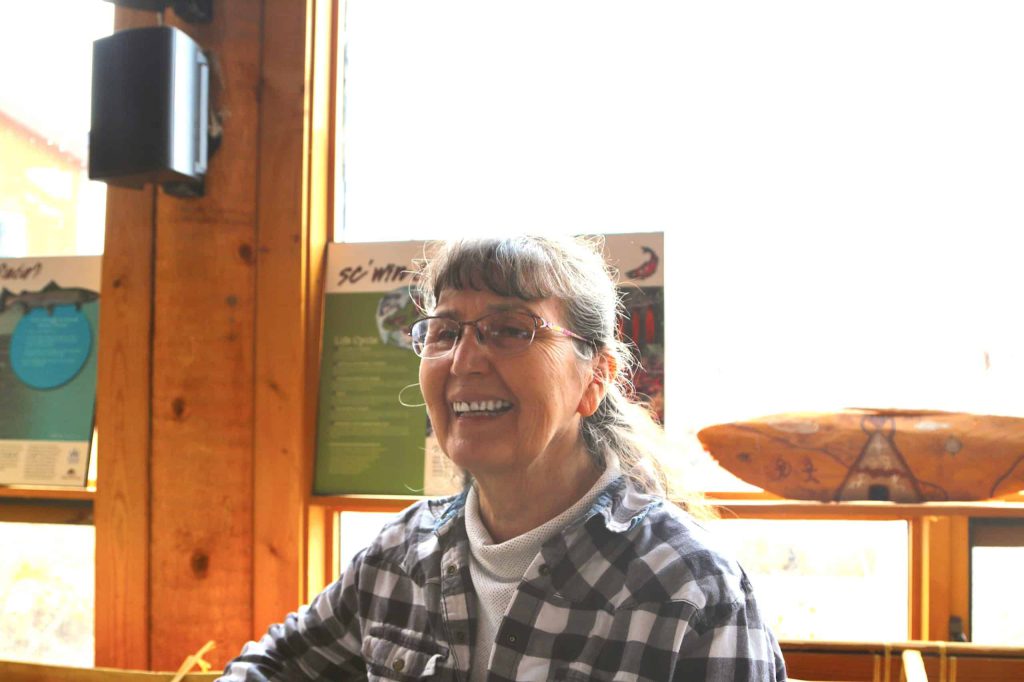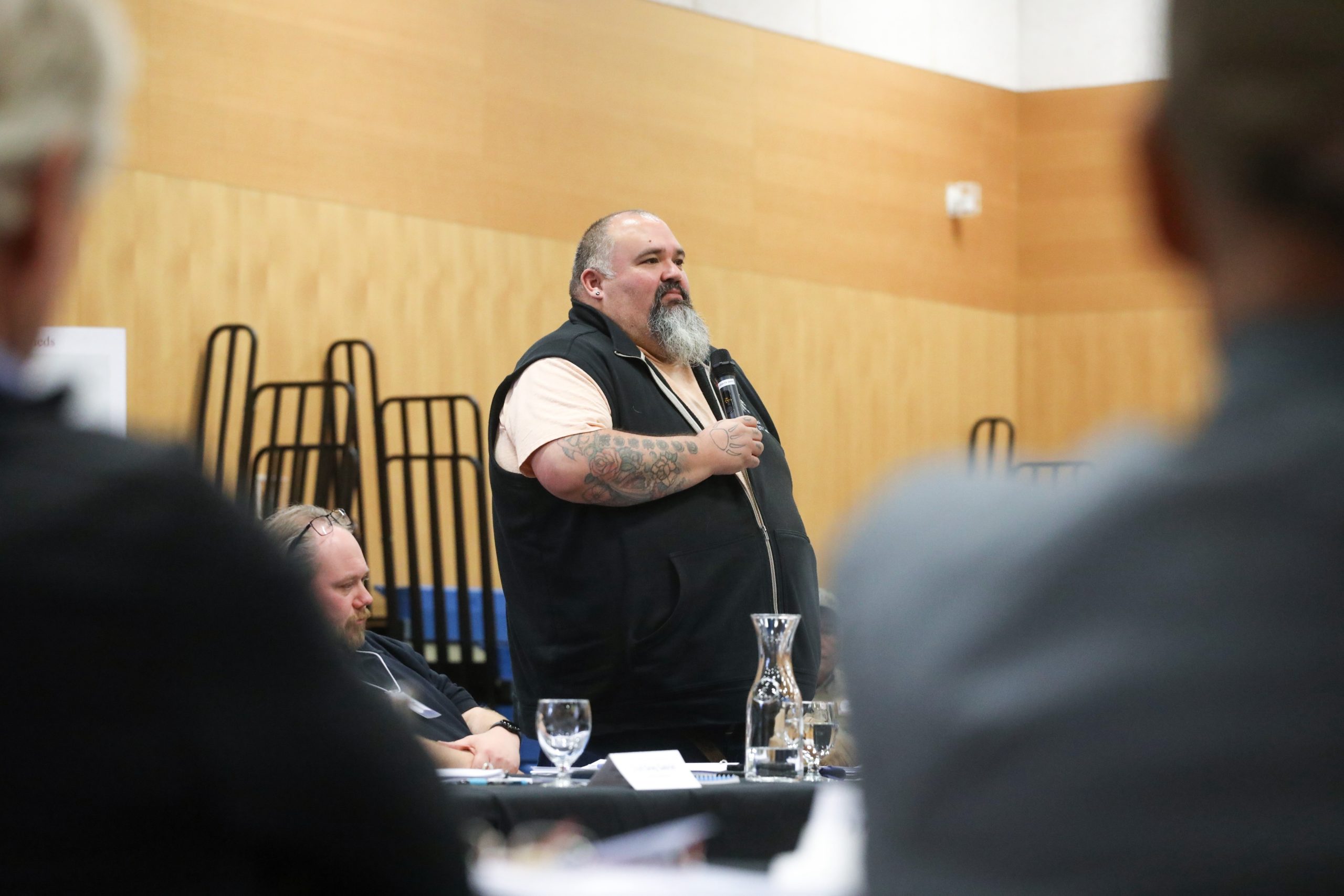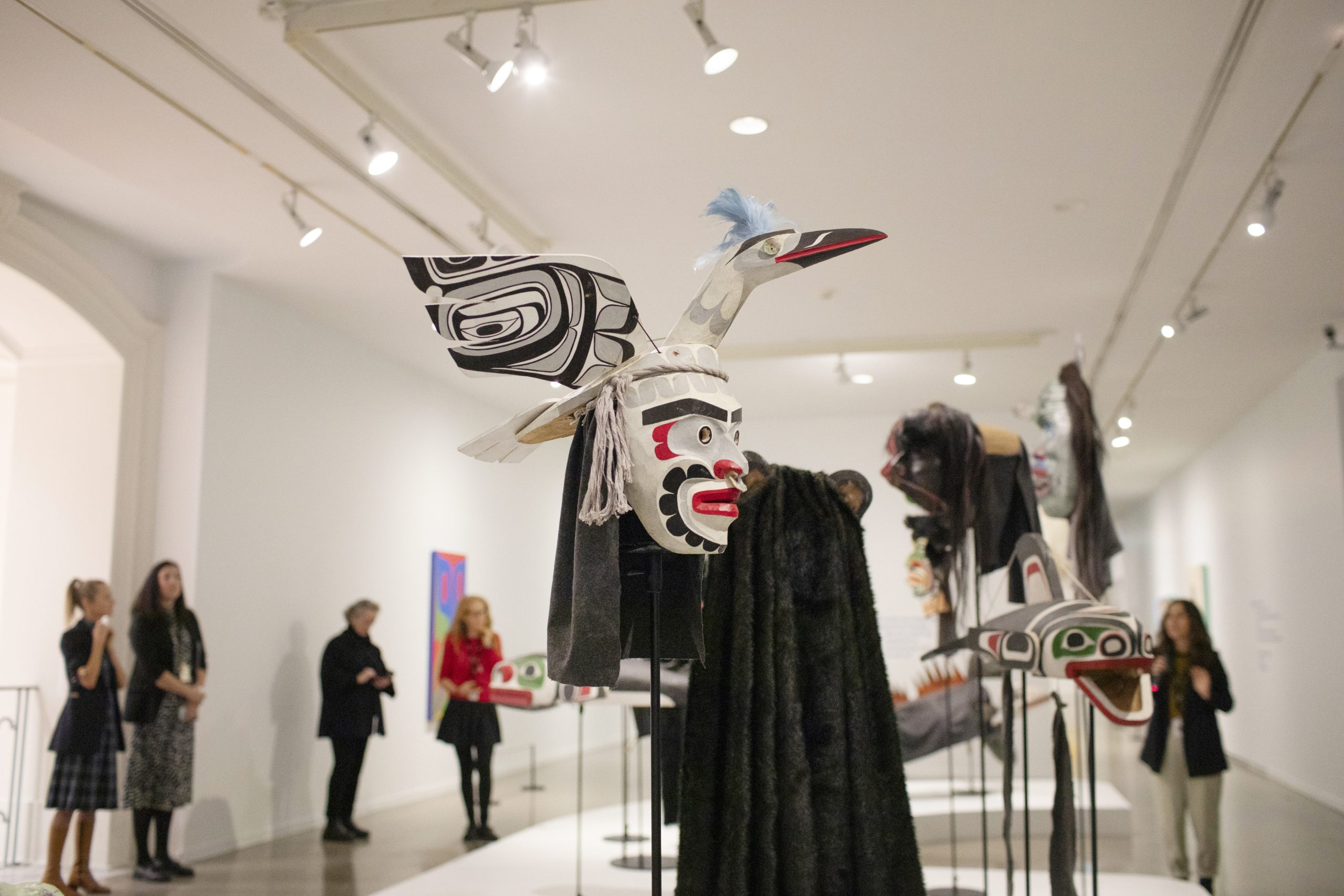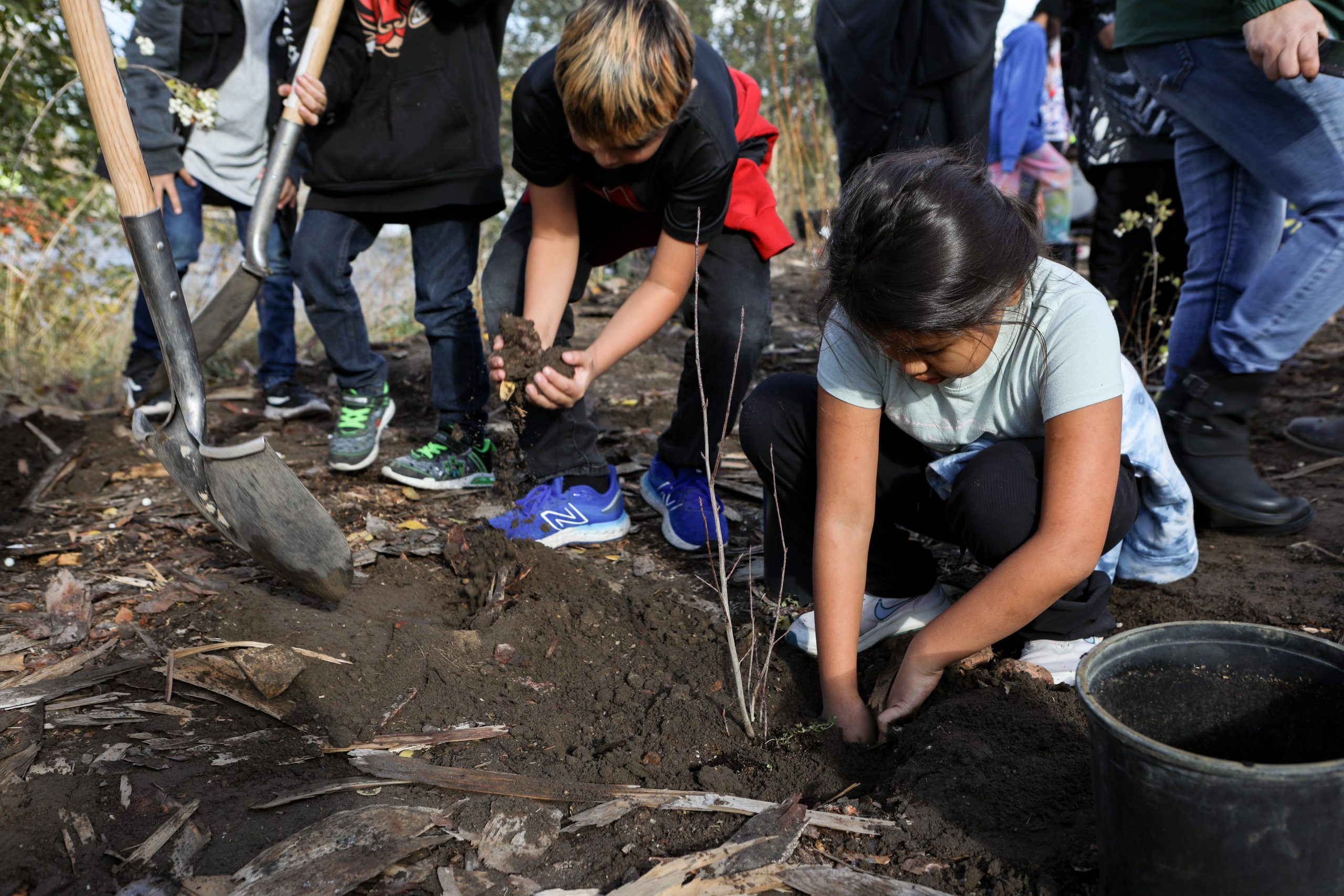How snk̓lip brought salmon to snpinktn
The shortened captikʷl on the syilx Place Name qʷc̓iʔs snk̓lip (coyote’s winter home)

This is the first installment of IndigiNews’ Okanagan mini series on significant place names throughout the syilx Territory. Our goal is to give the original ancestral place names space, and reclaim them for them for our Nation.
Jeannette Armstrong shares her knowledge on the place name for qʷc̓iʔs snk̓lip, which is “geographically, the centre of the Okanagan,” she says.
snk̓lip is a coyote and qʷc̓iʔs means winter home, so the phrase translated from nsyilxcən (the syilx language) to English is “coyote’s winter home,” explains Armstrong, who is a professor of Indigenous Studies and a Canada Research Chair in Indigenous Knowledge and Philosophy at UBC Okanagan.
There are many stories of snk̓lip (coyote), who teaches the syilx people their laws through captikʷl (the documentation of syilx knowledge), about how they should treat each other, how to live and survive on the land and what protocols to follow.
In this shortened captikʷl, you will learn how snk̓lip brought salmon to people of snpinktn (Penticton) and how snk̓lip got his forever qʷc̓iʔs (winter home) built in snpinktn.
snk̓lip was at the mouth of the Columbia and found these sisters who had dammed the river so salmon couldn’t come through.
snk̓lip had to find a way to trick the sisters into accepting him, so he could break the dam and bring salmon to the People.
So snk̓lip decided he would change himself into a little baby. First, he would get the sisters to accept him as a little brother. Then he would become their husband to ensure an alliance was made.
The law snk̓lip is teaching us by becoming their husband is how chiefs traditionally made marriages in these other villages. So they’d have relatives in that community to trade and get food from.
The marriage allowed snk̓lip to break the dam and bring the salmon up. After, he went to every community in the syilx Territory and asked if they wanted salmon to swim up to their waterways.
The people from snpinktn agreed — however snk̓lip said if they wanted salmon, then he would need a home there, and he would need to have a wife in order to have a home.
So the Hereditary Chief built qʷc̓iʔs snk̓lip (coyote’s winter home) for snk̓lip and gave him a wife because he brought salmon to the people.
“They built his home because they wanted him to be here and so that he’d always come back,” says Armstrong, who is a Penticton Indian Band member.
“For us, it’s a marker and it marks who we are as a people from this community.”
qʷc̓iʔs snk̓lip holds another significance to the people from snpinktn because it also relates to the name of the community. pinktn means all the time or permanently. So snpinktn relates to a place where there will always be syilx people.

“There’s never going to be a time when our people are not here,” Armstrong adds.
The difference of a qʷc̓iʔs (winter home) to a sxʷulłxʷ (summer home) is that a sxʷulłxʷ (summer home) moves around with you while travelling to hunt or dig roots.
“The qʷc̓iʔs stays in place; you never move the qʷc̓iʔs around. You never move your home around,” Armstrong explains.
The Penticton Indian Band logo of two snk̓lip facing each other was designed by Armstrong, in honour of qʷc̓iʔs snk̓lip and snk̓lip’s two sides — what is good and bad for the people.
One side is a teacher of the law, good and betterment for people. The other side of it is that the only way you can know what’s good is you also have to be knowledgeable about what’s not good for the people.
So snk̓lip also shows us that the worst traits of any person are to be selfish, greedy, lazy, a bully, conniving, oversexed with many wives — by being all those things himself, he teaches the syilx people is that if you can see how bad those things are, for you as an individual or family or for your community, then you should be able to change for the better.
The side is where it becomes law that the people are not to do these things or act that way. You’re not to treat anybody in their community disrespectfully, lie about them, abuse them or hurt them — because they’re your people.
“When people are like that, they’re breaking the law. That’s what that house means, qʷc̓iʔs snk̓lip, so all the communities in the syilx nation, that’s how we’re supposed to be,” says Armstrong.
Armstrong tells IndigiNews it is crucial to her to uphold and pass on her knowledge about ancestral syilx place names because this is unceded territory and place names identify the people and the knowledge of that place.
“Things like that I think are not only just for us to think about as a story, but also to understand our responsibility to who we are and what we’re supposed to take care of and keep going,” says Armstrong.
_______________________
Cultural Knowledge shared in this story is not to be used for monetization of any kind. Please take this as a gift. It is an offering of story and being invited into this knowledge should be considered an honour. Please keep it safe.
Kinship Connection: Athena Bonneau is the granddaughter of Jeannette Armstrong, featured in this story. It is with great honour we share our kinship ties.
Language Protocol: According to nsyilxcən language speakers, there are no capitalizations in the spellings of any nsyilxcən words. In an egalitarian society, capitalization insinuates there is something that holds more importance over another, and that does not fall in line with syilx ethics.
Author
Latest Stories
-
‘Bring her home’: How Buffalo Woman was identified as Ashlee Shingoose
The Anishininew mother as been missing since 2022 — now, her family is one step closer to bringing her home as the Province of Manitoba vows to search for her
-
Why aren’t there more Indigenous foods in ‘Canadian’ grocery stores?
Indigenous foods are varied, delicious and plentiful — but getting them to customers can be a challenge for small producers
-
Frustration grows over premier’s plan to alter Indigenous rights legislation
‘B.C.’s’ DRIPA law was touted as a reconciliation milestone. Now a series of court rulings has David Eby wanting to change it — a plan one lawyer calls ‘extremely offensive’













